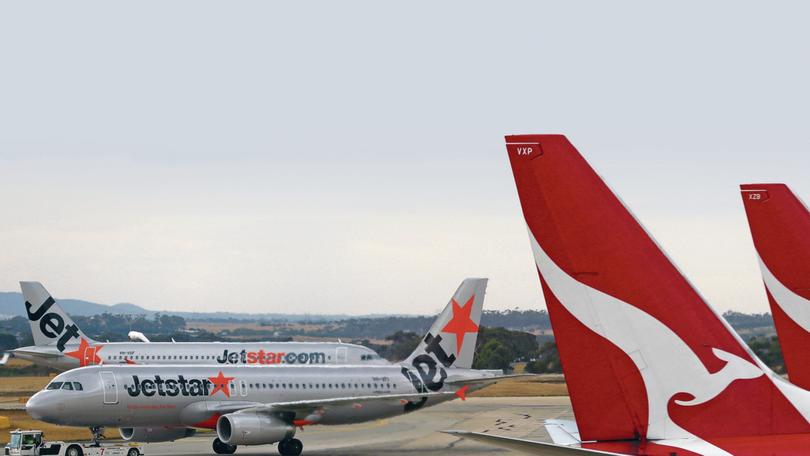ACCC says air fares are trending, but reliability is still poor
Australia’s competition watchdog says airfares have fallen but carriers are still falling short in reliability and service.

Australia’s competition watchdog says airfares have fallen but carriers are still falling short in reliability and service.
A new report by the Australian Competition and Consumer Commission found prices over 2023 had fallen compared to peaks experienced in the latter half of 2022, noting cheaper jet fuel and a fall in demand had led to a decline in fares.
Despite the improvement — in part thanks to seat capacity returning to near pre-pandemic levels — the ACCC said cancellation rates across the board are still running at double the long-term average and it was impacting customers.
Sign up to The Nightly's newsletters.
Get the first look at the digital newspaper, curated daily stories and breaking headlines delivered to your inbox.
By continuing you agree to our Terms and Privacy Policy.“Travellers finally saw some relief from high airfares last year, which was consistent with cheaper jet fuel prices and slightly lower demand for domestic air travel,” ACCC chair Gina Cass-Gottlieb said.
“The persistently high rates of cancellations and delays compared to long-term averages in the second half of last year were clearly disappointing for consumers.”
Both Qantas and Virgin Australia argue air traffic controller shortages at Airservices Australia has impacted the reliability of services at major airports.
The ACCC has also conceded Airservices had contributed to the poor performance.
Ms Cass-Gottlieb said the introduction of Rex and Bonza on some domestic routes would bring down airfares further, but said the two majors still dominated the market.
“When more airline groups compete on a particular route, consumers benefit from lower fares,” she said.
“Qantas and Jetstar, however, continue to fly over 60 per cent of domestic passengers, representing a very high market concentration.”
Qantas said its services had improved over the year, but flagged more work would be needed to bring the reliability back to pre-pandemic levels.
The airline’s overall on-time performance was five percentage points better in 2023 compared to 2022 and its cancellation rate over the same period dropped 1.5 per cent.
“While our reliability has improved, we know there is still more work to do,” the airline said in a statement.
“In January, even with the ongoing disruptions from air traffic control shortages and weather, 77 per cent of Qantas flights departed on time, nearing the long-term industry average of just over 81 per cent.
“Flight cancellations were 2.5 per cent, just above the long-term industry average.”
The ACCC said the overall domestic market was about 94 per cent of 2019 levels and in December last year saw 4.8 million people travel domestically.
“The last four years have been a particularly unstable period for the domestic airline industry,” Ms Cass-Gottlieb said.
“Although passenger levels and capacity have not quite returned to pre-pandemic levels, the industry appears to have largely moved on from its recovery phase and is now exhibiting more typical seasonal trends.”
The ACCC’s report is the first after the Federal Government reinstated its domestic airline monitoring program in 2023 after accusations of price gouging by airlines.
Originally published as ACCC says air fares are trending, but reliability is still poor
